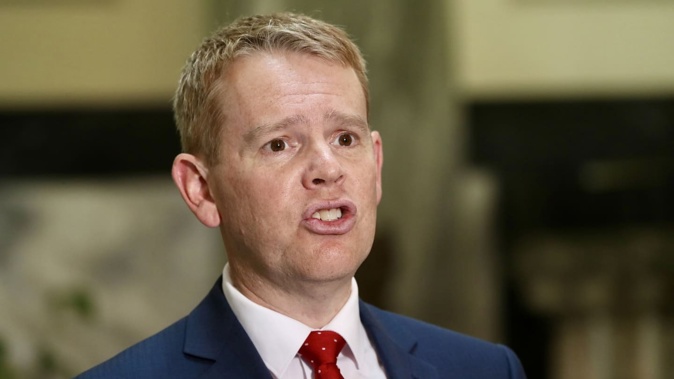
Labour is claiming the Government is subverting the parliamentary process by changing the new Three Strikes legislation after it went through the select committee’s public consultation.
Associate Justice Minister Nicole McKee announced the changes this morning, which included halving the sentencing threshold for a first strike, and making it retrospective, which would capture several thousands of the 15,000-odd offenders with strikes to their name under Three Strikes 1.0 that was repealed by the previous Labour Government.
McKee claimed the changes were in response to public feedback saying her initial proposals were too soft, despite the potential for conflicts with the Bill of Rights Act [Bora] that was witnessed following the implementation of the original Three Strikes framework.
It was the latest change to a controversial law aimed at the worst violent and sexual offenders, imposing on them ever-harsher sentences for repeated convictions for certain qualifying offences. Strike one would mean a normal sentence and a warning, strike two would mean serving the full sentence with no parole, and strike three would mean serving the maximum sentence for the offence with no parole.
Among the primary changes was cutting the sentencing threshold for a first strike to 12 months’ jail instead of 24 months. It would remain at 24 months for strikes two and three.
Labour's justice spokesman Duncan Webb believes the Government wasn't following the proper process. Photo / Mark Mitchell
Labour’s justice spokesman Duncan Webb noted the justice select committee hadn’t reported back following public consultation on the bill, which Webb said had shown “overwhelming opposition”.
“The Government is subverting parliamentary process on laws the evidence already shows don’t work. The proper process to have input is through the select committee, not a selection of private emails to the minister,” he said.
“The fact Minister Nicole McKee is jumping the gun and making these changes shows she is not interested in evidence or good process.”
Labour leader Chris Hipkins highlighted how the change to the Three Strikes bill was the latest instance of late amendments to controversial legislation, pointing to changes to the Government’s gang patch ban and fast-track consenting bills.
“In all of these cases, it’s not that they miraculously changed their minds. I think it’s either that the bill wasn’t well drafted in the first place, [it] didn’t reflect their intention in the first place, or they were trying to conceal what they were actually trying to do until the select committee process was over.
“Either way, that’s terrible. I think they should be better prepared.”
Labour’s criticism came alongside similar condemnation from the Criminal Bar Association of New Zealand with spokeswoman Annabel Cresswell considering it a “failed policy” that didn’t reduce crime.
“It is shameful that New Zealand has one of the highest imprisonment rates in the developed world. This is despite mounting evidence that mass incarceration is a costly failure,” she said.
“So-called tough-on-crime policies that take away fair process and judicial discretion undermine our justice system’s ability to respond to the causes of offending in each case, which ultimately means fewer offenders can be successfully rehabilitated or safely re-join society.”
She claimed the legislation would end up targeting those with mental illness, addiction issues and Māori, as well as contributing to “over-populated prisons” and costing billions.
However, Sensible Sentencing Trust spokesman Stephen Franks believed the Government hadn’t gone far enough and should base the legislation on conviction type instead of a judge’s sentencing decision.
“Changing the threshold so a strike only counts if a [criminal] gets 12 months imprisonment at the first strike stage and two-year threshold for second and third strikes makes no sense at all.”
 Justice Minister Paul Goldsmith says the Government is still committing to addressing long-term drivers of crime. Photo / Ben Dickens
Justice Minister Paul Goldsmith says the Government is still committing to addressing long-term drivers of crime. Photo / Ben Dickens
Justice Minister Paul Goldsmith today said criticism from the legal sector that the Government wasn’t interested in addressing the drivers of crime was “complete nonsense”.
The first iteration of Three Strikes was widely panned for being too restrictive and leading to unfair sentences. The current version had a “manifestly unjust” clause that was applicable to the sentencing and parole aspects of strikes two and three.
Goldsmith was confident that clause would only be used when appropriate.
“Parliament is sending a clear signal that we want our serious repeat offenders held to account.”
Corrections Minister Mark Mitchell said he hadn’t been advised what impact the changes would have on the prison population but he referenced several Government initiatives to expand prison capacity, such as the Waikeria Prison upgrade and discussions about expanding Christchurch men’s prison.
“There may be a change on the margins but fundamentally the Three Strikes legislation is about recidivist offenders who keep offending, making sure that they actually stay in prison.”
Adam Pearse is a political reporter in the NZ Herald Press Gallery team, based at Parliament. He has worked for NZME since 2018, covering sport and health for the Northern Advocate in Whangārei before moving to the NZ Herald in Auckland, covering Covid-19 and crime.
Take your Radio, Podcasts and Music with you









